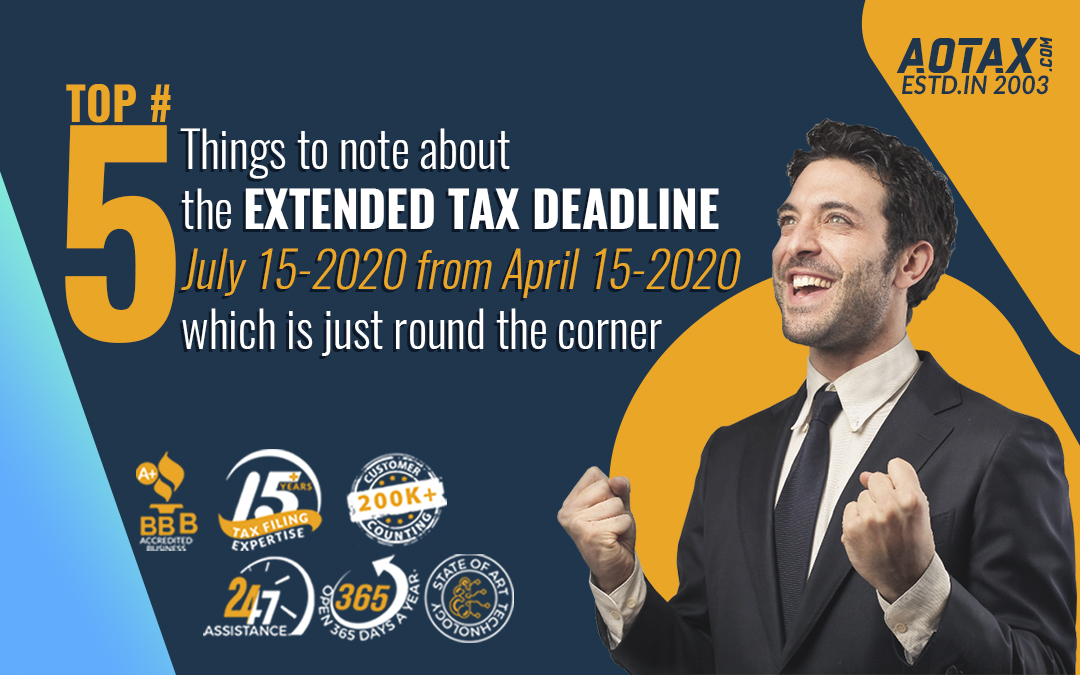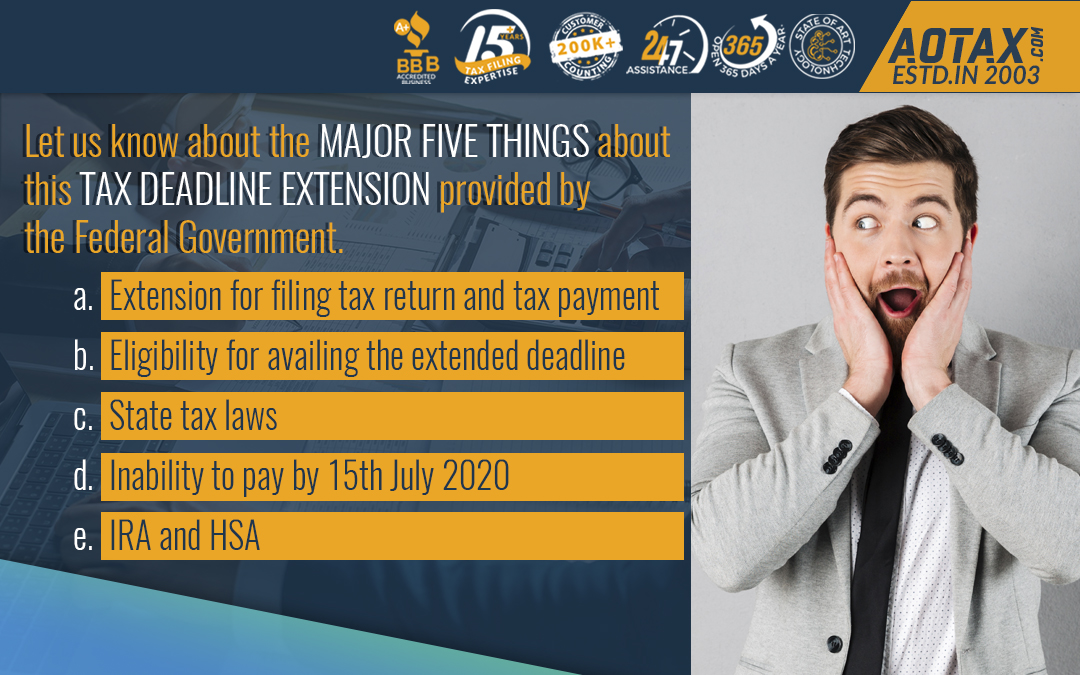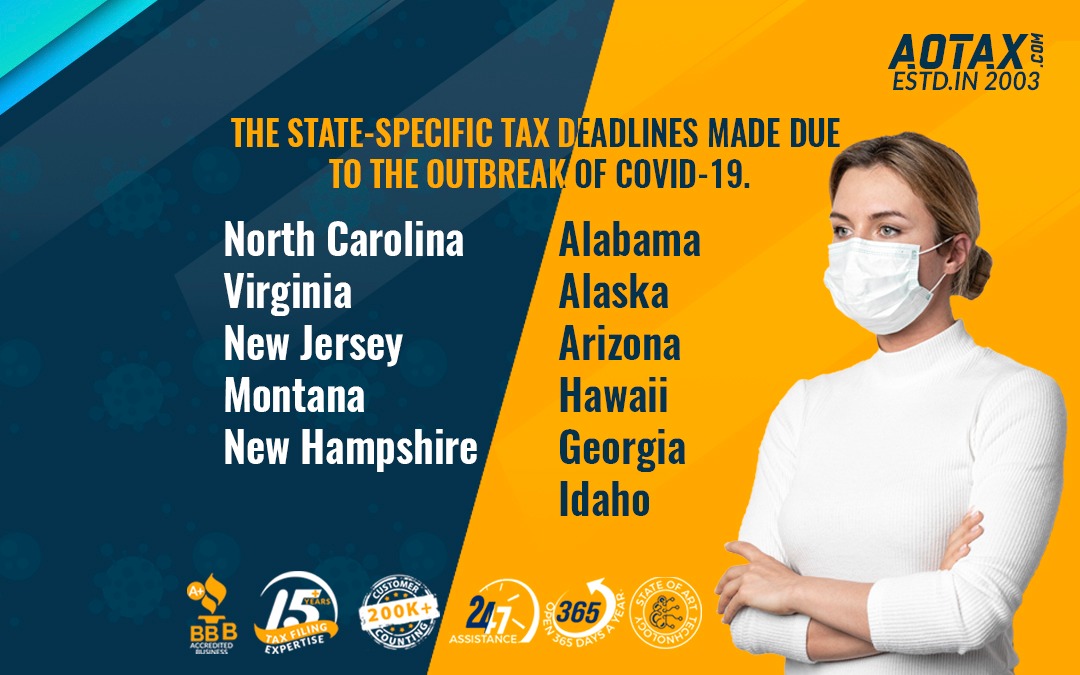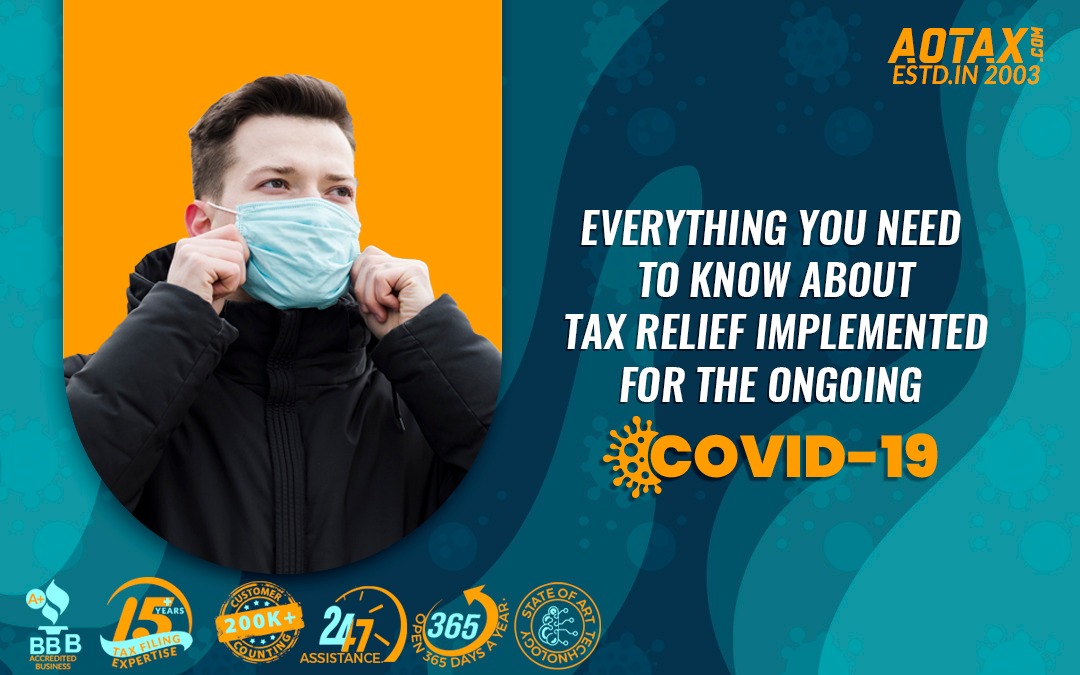
Top #5 things to do if you have missed the tax deadline
Top #5 things to do if you have missed the tax deadline
With response to the outbreak of the pandemic COVID-19, the US Treasury Department and the IRS had provided special tax filing and payment relief to the Americans. The deadline for tax returns had been extended by the IRS from 15th April 2020 to 15thJuly 2020. The IRS had continuously urged the Americans to file their tax returns before the completion of the tax deadline or request for an extension in case of ineligibility to file or pay by the declared deadline.
However, the federal tax deadline has come and gone now. If you have missed your federal tax deadline and have not also filed for an extension then, you should have an idea about the course of action you can follow now.
Go ahead and file as soon as you can
- If you owe money to be paid to the IRS, then you must file your tax returns soon to avoid paying any penalties to the IRS.
- Even though the IRS would charge penalties on you for the late filing of your returns but that would be somewhat less than the penalties charged for not filing the tax returns at all.
- The IRS would have received Form 1099-Misc and Form W-2 which would reflect your income earned for the year. You must file your returns immediately so that the IRS does not show that you need to pay more taxes.
- Moreover, you might be having a tax refund and it may not come if you have a tax penalty to pay. In case you have a tax refund and do not file your taxes then you would have to wait for three years of the tax return due date.
Make arrangements for the payment
If you are not filing your tax returns on time because you are not sure about how you will arrange for your payment amount then, you can follow the below-mentioned steps.
- You must file your tax returns soon, pay whatever amount you can arrange, and then request a payment plan from the IRS.
- There are several options available with the IRS such as a request for a short term payment plan, offer in compromise, long term installment plan, or temporarily delay collections in some cases.
- By the short term payment plan, you can pay the amount you owe to the IRS within 120 days. Similarly, by long term installment agreements, you can pay your amount over 6 years.
- In case your total taxes, penalties, and interest are up to $50,000, you can request for an installment agreement online.
Information about the penalties
If you have not filed your tax returns or not paid your taxes on time, you should be aware of the penalties which you would have to pay.
- Failure-to-file penalty – This penalty would be 5% of the unpaid taxes for each month your tax return filing is late until 5 months. However, if you are filing your tax returns late by more than 60 days you; you would have to pay whichever is less i.e. 100% of the federal taxes you owe or a specific dollar amount which can be adjusted annually for inflation. This “specific dollar amount “is $435 for those returns which are due after 1st January 2020.
- Failure-to-pay penalty – The IRS would charge you 0.5% of your unpaid taxes for each month of unpaid due up to 25%. Interest would be accrued on the unpaid taxes and would be equal to the Federal Short term rate plus 3%.
In most cases, the failure-to-file penalty is much more than the failure-to-pay penalty. So, it is advisable that if you are not able to pay the taxes on time you should at least file your tax returns on time.
Use e-filing
If you have not filed your tax returns yet, you can still do it online by using the e-filing method. If you are using the conventional methods of tax filing, it will take a longer time to be received by the IRS and to be processed by the IRS. If the filing has been done by electronic means, the IRS would process the return requests within 21 days from the date of receipt of the return.
Do not ignore
You should be completely aware of your specific tax situation. The sooner your tax issues are addressed the better. If you continually keep on ignoring your taxes, you would have to face some serious penalties like
- IRS can file a notice of a federal tax lien.
- Your property might be seized.
- IRS could forfeit your refund.
- In serious cases, your passport might be revoked or charges could be filed against you for tax evasion.
Conclusion
It is advisable not to avoid your tax-related problem, do good research, seek help from professionals, and work toward finding a solution to your problem.














Recent Comments